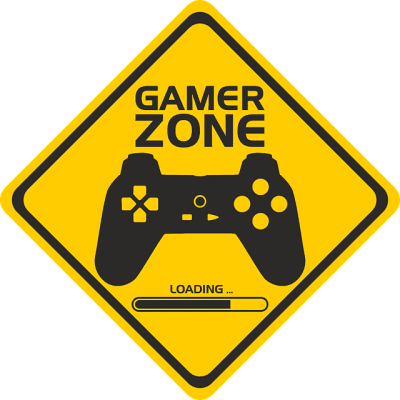Cheating in video games has been a growing concern within the gaming community, posing significant threats to the integrity and enjoyment of these virtual worlds. Cheating is always there as long as players have played games against one another. By examining various types of cheating techniques and their consequences, as well as exploring ethical considerations surrounding this issue, we can better understand why cheating poses a grave threat to the gaming experience. In recent years, there has been a noticeable rise in instances of cheating in video games. As technology advances and online multiplayer titles become more prevalent, so too do the opportunities for players to gain an unfair advantage through illicit means.

The Rise of Cheating in Video Games
The prevalence of cheating in video games has seen a significant increase, infiltrating the virtual realms and casting a shadow over the immersive experience for players worldwide. Players now have access to cheat codes, hacks, and mods that enable them to gain unfair advantages over others. This not only undermines the integrity of online games but also creates an imbalanced playing field where skill and strategy are overshadowed by cheating tactics. Cheating in video games, for example, when players decide to buy Dark and Darker accounts, can significantly tarnish the gaming experience and undermine the integrity of the Dark and Darker gaming community.
Game developers are constantly battling against this silent enemy, implementing anti-cheat systems to detect and punish cheaters. However, as technology advances, so do the methods used by cheaters to evade detection. The rise of cheating in video games calls for a collective effort from both players and developers to preserve fair gameplay and maintain the integrity of these virtual worlds.
Types of Cheating Techniques
Here are some common types of cheating techniques:
Aimbot
Aimbot software assists players in aiming accurately by automatically locking onto opponents. This gives cheaters an unfair advantage in shooter games. For example, cheating in first-person shooter games can occur through the use of aimbots to help players aim accurately.
Wall hacks
Wall hacks allow cheaters to see through walls, revealing the positions of other players. This provides a significant advantage in knowing opponents’ locations.
Speed Hacks
Speed hacks increase a player’s movement speed, allowing them to traverse the game world faster than other players.
ESP (Extrasensory Perception)
ESP cheats reveal additional information not normally visible to players, such as enemy health, item locations, and more.
No Recoil/Spread
Cheaters can eliminate weapon recoil or bullet spread, allowing for highly accurate shots even during rapid fire.
How Cheating Can Ruin Video Games
Below is how various cheating ruin games:
Diminish the Sense of Accomplishment
Cheating in video games not only disrupts the fair play aspect but also diminishes the satisfaction that comes from overcoming challenges within a game. The sense of accomplishment is closely tied to the game mechanics and progression systems, which are designed to reward players for their efforts and progress. When cheating occurs, it bypasses these systems, allowing players to achieve success without actually earning it. This not only devalues achievements but also hampers the overall experience for both cheaters and legitimate players alike.
Unfair Competition
Unfair competition in virtual experiences can significantly impact the overall fairness and enjoyment of the gameplay for all participants. Cheating has become a prevalent issue in the video game industry, with cheat developers constantly finding new ways to exploit vulnerabilities and provide an unfair advantage to players. This not only undermines the integrity of popular games but also creates an uneven playing field where skill and strategy are overshadowed by cheating tactics. For example, in the popular game ‘Fall Guys,’ cheat software enables players to move faster, jump higher, or even fly, giving them an unfair advantage over legitimate players.
The first consequence of unfair competition is that it diminishes the sense of achievement for legitimate players who invest time and effort into honing their skills. When faced with opponents who cheat, these players are deprived of a level playing field and may feel discouraged or disheartened by their inability to compete on equal terms. Additionally, unfair competition disrupts the competitive nature of multiplayer games, as it becomes difficult to discern genuine skill from cheating prowess. This can lead to frustration among players who strive for fair and balanced matches, ultimately driving them away from such games altogether.
Loss of Challenge and Enjoyment
Cheating in video games disrupts the balance that developers have carefully crafted, where success is meant to be earned through skill, strategy, and perseverance. When cheaters exploit loopholes or use external software to gain advantages over other players, the game world becomes distorted and unfair. Moreover, the presence of cheaters can create a toxic environment where honest players are constantly at a disadvantage, leading to frustration and decreased enjoyment overall.
Erosion of Skill Development
When individuals resort to cheats, they bypass the challenges that are integral to gameplay, thus robbing themselves of valuable learning experiences. The gaming industry invests significant effort in designing games that provide a balanced level of difficulty, allowing players to progressively enhance their proficiency through practice and perseverance. However, when cheats are employed, this carefully crafted progression is disrupted, leading to a stagnant skill set and limited growth.
Community Disruption
Cheating in video games has far-reaching consequences, with one significant impact being the disruption of the gaming community. This disruption extends beyond individual matches or sessions, as it erodes the overall sense of community that developers strive to cultivate. When cheating is rampant, gamers are less likely to engage in meaningful interactions, form friendships, or participate in collaborative activities within the game’s community. This can have detrimental effects on the longevity and success of a game, as well as diminishing player satisfaction and engagement.
Developer Resources Diverted
Instead of focusing solely on enhancing the overall gaming experience, developers are forced to allocate time, money, and manpower towards combating cheaters. This diversion of resources hampers the development process, slowing down the creation of new features or updates that could potentially enhance gameplay for honest players. Moreover, implementing effective anti-cheat measures requires continuous monitoring and updating to stay ahead of cheaters’ tactics, further consuming developer resources.
Consequences of Video Games Cheating for Cheaters

Cheating in video games might provide immediate advantages, but it can have several negative consequences for the cheaters themselves. Here are some potential consequences cheaters might face:
Account Suspension or Ban
Game developers and publishers take cheating seriously to maintain fair play. Cheaters can have their accounts suspended or permanently banned from the game, losing access to content and progress.
Loss of Reputation
Cheating can lead to a negative reputation within the gaming community. Other players may see cheaters as dishonest and avoid engaging with them.
Diminished Skill Development
Relying on cheats can hinder a player’s ability to develop legitimate gaming skills. Cheaters miss out on the learning curve and sense of accomplishment that comes with mastering a game.
Lack of Fulfillment
Cheaters miss the satisfaction of overcoming challenges and achieving in-game goals through their own efforts. This can result in a shallow gaming experience.
Isolation
Cheating can lead to exclusion from gaming communities, as honest players might not want to associate with cheaters.
Ethical Considerations in Video Games
When it comes to video games, there are several ethical considerations that developers and players should take into account.
- The game developers have the responsibility to create a balanced gameplay experience that provides equal opportunities for all players. This means avoiding pay-to-win mechanics or unfair advantages that can give certain players an unfair advantage over others.
- Players themselves have a moral obligation to play by the rules and not engage in cheating or exploiting glitches that undermine the integrity of the game. Cheating not only ruins the experience for other players but also undermines the efforts of those who play honestly. Moreover, cheating can lead to negative consequences such as account suspensions or bans from online communities.
How to Preserve the Integrity of Video Games
Here are several steps that can be taken by players, developers, and the gaming community to achieve this goal:
For Players
Play Fairly
The most straightforward way to preserve integrity is by playing games fairly and not using cheats or exploits that give unfair advantages.
Report Cheaters
If you encounter cheaters in a game, report them to the game’s developers or administrators. Many games have reporting mechanisms to deal with cheaters.
Promote Positive Behavior
Encourage good sportsmanship and positive behavior among fellow players. Avoid toxic behavior and contribute to a welcoming gaming community.
For Developers
Implement Anti-Cheat Systems
Developers should invest in robust anti-cheat systems that can detect and prevent cheating effectively. For example, Epic Games has been trying to counter cheating by developing anti-cheat software.
Regular Updates
Keep games updated to fix vulnerabilities and address new cheating methods as they emerge.
Transparent Communication
Developers should communicate clearly with players about their efforts to combat cheating and the consequences cheaters might face.
For the Gaming Community
Promote Fair Play
Communities should create a culture that values fair play and discourages cheating.
Support Reporting
Encourage players to report cheaters and support developers in their efforts to address cheating.
Create Positive Spaces
Foster welcoming and positive gaming environments where players can enjoy the game without fear of cheating or toxicity.
Frequently Asked Questions
How Does Cheating Affect the Gaming Experience?
Cheating can negatively impact the gaming experience by creating an unfair environment where players who use cheats dominate. This diminishes the challenge, skill development, and enjoyment of those who play legitimately.
Can Cheating Affect In-Game Economies?
Yes, cheating can flood in game purchases with ill-gotten items or currency, disrupting the balance and devaluing the efforts of legitimate players.
Are There Legal Consequences for Cheating in Video Games?
Yes, some cheating methods involve hacking or other illegal activities that can result in legal action. Additionally, cheating can violate a game’s terms of service, leading to potential legal repercussions.
What’s the Long-Term Impact of Cheating on a Gaming Community?
Cheating can lead to a toxic gaming environment, isolating honest players and causing a decline in player engagement over time. This can eventually affect the game’s community and lifespan.
Conclusion
Cheating emerges as a silent enemy that undermines the very essence of the experience we hold dear. The allure of shortcuts and immediate victories can blind us to the profound joys of overcoming challenges, mastering skills, and engaging in fair competition. As we unmask the insidious nature of cheating and its far-reaching consequences, we stand united in our commitment to preserve the integrity of video games.
